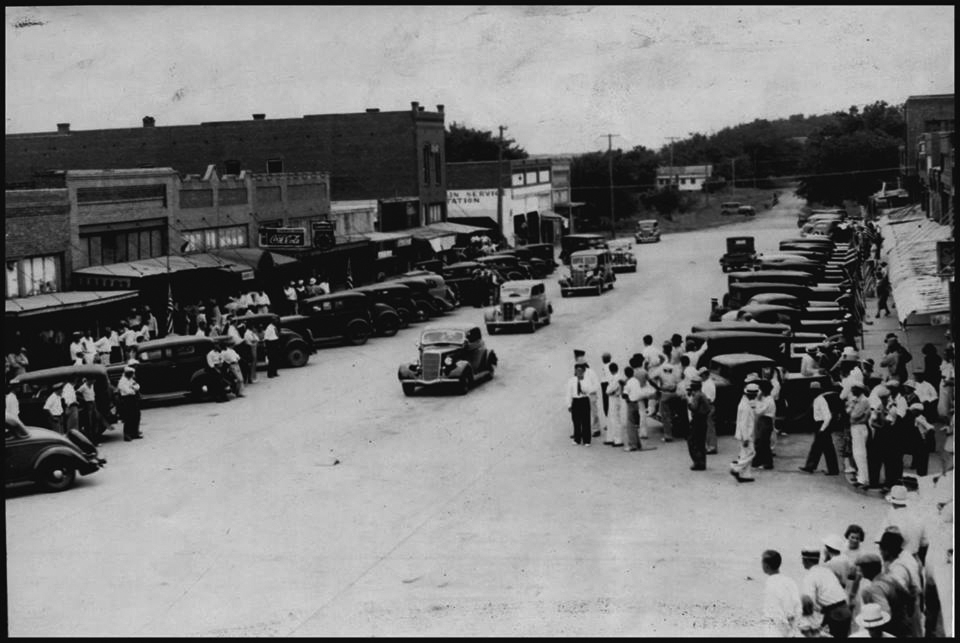MAYSVILLE.
Maysville, located at the juncture of State Highways 74 and 19 in northern Garvin County, Oklahoma, approximately fourteen miles west of Pauls Valley, began its history with the ignoble appellation of Beef Creek. In 1871 the El Paso Stage Company, which received the mail delivery contract for Fort Sill, built stations every ten to fifteen miles from Caddo on the Missouri, Kansas and Texas (Katy) railroad to Fort Sill. One of these stage stands was on a tributary of the Washita River known locally as Beef Creek, a name possibly used because cattle on the way to market were held there for fattening.
David Mays, for whom the community of Maysville is named, located at Beef Creek in 1872. From a pecan-and-cottonwood cabin with an earth floor, the Mays family launched into the beef cattle industry, buying Texas cattle, feeding them out, and then shipping the finished steers to markets. Before long the Mays family had a substantial ranching operation, a better house, and neighbors. In June 1878 a post office was established at the Beef Creek Station.
In 1901 the Kiowa, Chickasha and Fort Smith Railway (later the Atchison, Topeka and Santa Fe Railway) pushed its lines westward from Pauls Valley, opening a depot about a mile north of the old Beef Creek community. The whole town then moved to the new location. The post office relocated in September 1902, changing its name to Maysville. Its population steadily increased from 308 individuals in 1907 to 875 in 1930, peaked at 1,530 in 1960, and declined to 1,203 in 1990. The census reported 1,313 in 2000. Maysville was a community of 1,220 residents in 2010. The April 2020 census reported a population of 1,084.
Because of its location in the fertile Washita River valley, Maysville has an agricultural economic base, but it is also the headquarters of several businesses supplying the needs of the petroleum industry. The town prides itself on being the home of Wiley Post, "the Father of Modern Aviation," because Post's family lived in Maysville when he made his famous round-the-world flights.
See Also
Learn More
James Cox, Historical and Biographical Record of the Cattle Industry and Cattlemen of Texas and Adjacent Territory (St. Louis, Mo.: Woodward and Tiernan Printing Co., 1895).
Anita Lindsay, From Pioneers to Progress (Lindsay, Okla.: Smith Publishing, 1957).
Michael Tower, "Traders Along the Washita: A Short History of the Shirley Trading Company," The Chronicles of Oklahoma 65 (Spring 1987).
Citation
The following (as per The Chicago Manual of Style, 17th edition) is the preferred citation for articles:
Mike Tower, “Maysville,” The Encyclopedia of Oklahoma History and Culture, https://www.okhistory.org/publications/enc/entry?entry=MA047.
Published January 15, 2010
Last updated March 25, 2024
© Oklahoma Historical Society


